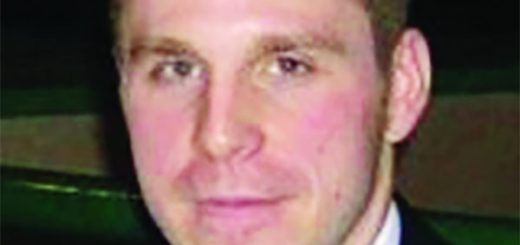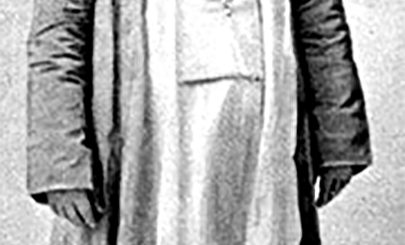Kiwi Sister Aisha found Islam between Japan and New Zealand
Finding Islam
Her name is Aisha and she is from New Zealand. She was attracted to Islam by a brief contact that she had with a young boy. She had a Somali student when she was at Victoria, and the students were required to do an assignment about consumption, which is what she teaches.
And his answer didn’t fit into the parameters of the assignment really. So Aisha had to call him in and say “Well, you know, this doesn’t really answer the question”. And so he explained about the way that his family butchers, which was outside the paradigms of thought entirely.
And then after that Aisha went to Japan, and when she went to Japan there were a lot of Muslim students there, and there was an Islamic center, so she just started reading these books, mainly probably to sort of argue with people. And also because in her class there was a whole lot of Philippinoes who were Catholic, and there were a few Muslims from different countries, and there was a bit of a class split. Because she was from here, she didn’t know anything about Muslims, and she didn’t really know much about Catholics either. She didn’t realize that there was fighting between religious groups in different countries.
“And after a lot of reading I thought “Ah… Yes… This is it!” So I became a Muslim alhamdulellah.”
Being A Muslim Woman
“Being woman in Islam is really good.”
She said that she would definitely have been described as a feminist before she became a Muslim woman.
“Now I think the whole paradigm of feminism is way too limiting for women. So I say with more and more study of the position of woman in Islam, it’s so much more, and so much better than feminism which is totally bounded by modernist logic.”
Comparing with the feminist circles Aisha said,
“I think that Islamic sisterhood is what the feminist project wanted for women. The relationships between women in Islam from an Islamic basis are very warm and supportive; in some ways maybe are sort of old-fashioned to us, like you have the responsibilities as a Muslim in certain situations, and I feel that women in Islam nurture each other and support each other very well, do everything they can for each other, and if there is a crisis of some kind there is always somebody who can help you within the group of the sisters.”
Describing different professionals who constitute a Muslim Sisters circle she said,
“You know, somebody can do everything; there are nurses, typists and doctors and people who can paint, there is a sister for every job, and they will help you. So the solidarity between women is just another aspect of Islam that supports you as a member of the community and the wider community, and your family and circles around circles, which is what Islam is, it’s a very happy and fascinating way of life.”
Life in Hijab
Muslim women wear their scarves because they are obliged to. And they are obliged to by Allah, who is not a man, and certainly not anybody’s husband or a father or brother. Aisha thinks actually the opposite is true. Although I wouldn’t use the term liberation, which I think too is a loaded term in English.
“My consideration in wearing my scarf is only my vertical relationship, which is between me and the Creator. I started wearing my hijab almost probably within about a week of becoming a Muslim. I thought Ok, if I’m going to make a big step of becoming Muslim I need to know what I’m doing, I need to read more about it, and I need to live it. As I learn it I need to live it and everything I need to put it in and I need to follow that. I have to do things completely, a complete system.”
Hijab; fabric, fad or fashion?
“So I started wearing my scarf, and that was fine. I never had any sort of particularly small stuff, and I wasn’t particularly stylish with it. I just wore it because I was required to wear it, and all the benefits of it. When I started wearing my hijab, I didn’t know any Muslim woman, so I was sort of organizing myself by myself, and as I was living in Japan and I didn’t know how to wear it or tie it so it didn’t slide down my hair, and I had to order all my clothes on the internet because being in Japan I had difficulty to find things needed or required to fit things in. So I ordered all these clothes from Kuwait on the internet and all this scarves and all these different things then because I didn’t know how to use any of them… So I used to practice wearing Islamic attire and I’m sure I looked like a mummy with all these big bands and pins around my hair… I started wearing my hijab, and I really do think that I looked like someone who had head injury, … until I met some Egyptian sisters in Japan who taught me how to wear hijab properly…”
She thinks the benefits of wearing hijab are huge, especially of course in the context when people know what it means. But for herself, she find it very good.
“People are forced to deal with me just as they find me, as they’ve got pretty few clues about how that is. So if I’m sitting on the bus reading my book they might think she’s very quiet, I’m not quiet, or any sort of ideas they have, they won’t know and they would not know until they engaged with me. They are forced to take me for what I show them. So if I’m friendly to them, that’s what they will know, as they can’t really get much from looking at me about me except probably that I’m foreign, which I’m not.”
Media and Misperception
There’s a great deal of miscommunication in the media about Islam. And it would seem to her, as someone whose business is to research, that it is obviously not objective. But worse than that, it’s intentionally misleading. They always pick things from reference books. Say they go to the Quran, and they pick out something, or they pick out part of something, which is more often the case. For example, they pick out the part about women, and there will be corresponding parts about men before it or after it usually, but it’s not there. So it always looks like its some huge patriarchal head censorship the life out of the poor well-covered women who are ashamed of their bodies. It’s a total misunderstanding of even the beginnings of Islamic thought to have such ideas, which are totally embedded in me. I mean some of this just dropped in these little explosive bombs of untruth that people just accept, because of course they don’t know and they don’t know enough about it to know that it isn’t right.
Aisha thinks “Islam is a complete entity by itself. It’s neither moderate nor extreme. It is a way of life. But Islam is the perfect system followed by many people, maybe all of them are imperfect. So some people are extreme, as in any group some people are extreme… Again I have a problem with the words. What does extreme mean? Extreme by whose measures? What is an Islamic extremist? What does that mean? … What is “moderate” Islam? Does that mean that you do your five prayers, but you are not as adherent to some other rules? I mean who is defining the terms?”
Sister Aisha summarizes what Islam is in some wonderful words,
“So I always have problems with the terms, especially the terms that are used in media contexts because they are so loaded. I mean what does that mean? Islam is neither moderate nor extreme. Islam is a complete system. Your job is to submit to the will of Allah and learn your religion. You go through and you learn your religion. The better you know it, the better you perform it, and the better you are to your community and all others.”
















Recent Comments